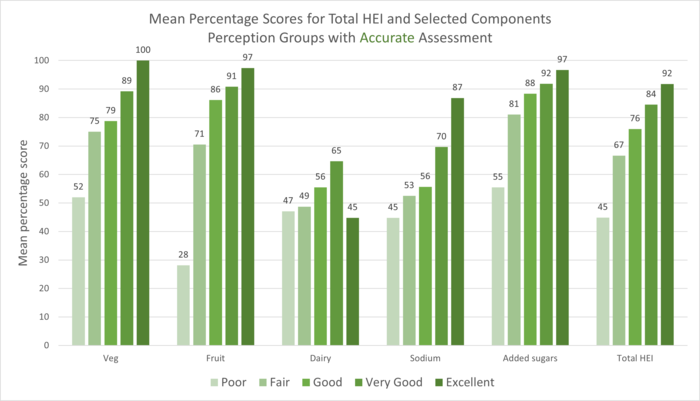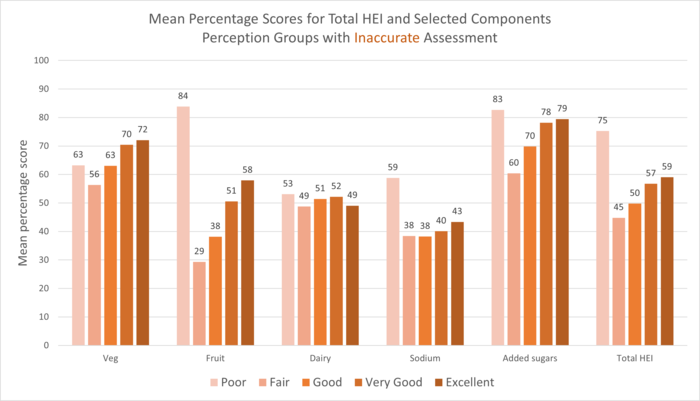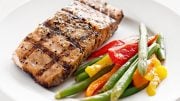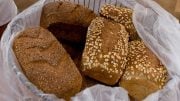
Of the 9500 participants surveyed, roughly 85% inaccurately assessed their diet quality.
A new study demonstrates that American adults frequently overestimate the quality of their diet
Is your diet healthy? It seems to be an easy question, but according to recent research, it is one that most Americans fail to answer correctly.
“We found that only a small percentage of U.S. adults can accurately assess the healthfulness of their diet, and interestingly, it’s mostly those who perceive their diet as poor who are able to accurately assess their diet,” said Jessica Thomson, Ph.D., research epidemiologist with the U.S. Department of Agriculture’s Agricultural Research Service in the Southeast Area, the study’s lead author. “Additionally, most adults overrate the quality of their diet, sometimes to a substantial degree.”
Thomson presented findings at NUTRITION 2022 LIVE ONLINE, the flagship annual meeting of the American Society for Nutrition that was held from June 14th to 16th.

Average researcher-assessed diet quality (with 100 being the highest score possible) among groups of participants who accurately rated their diet quality. For participants who accurately assessed the healthfulness of their diet, diet quality scores increased as participants’ perception of the diet increased from poor to excellent for total diet quality (total Healthy Eating Index [HEI] score) and for the vegetables, fruit, sodium, and added sugars components of the diet. However, the same increasing pattern was not present for the dairy component of the diet. Credit: Dr. Jessica Thomson, Research Epidemiologist at the USDA Agricultural Research Service
The National Health and Nutrition Examination Survey, a twice-yearly survey of people in the United States that is nationally representative, provided the data for the research. Participants were required to fill out comprehensive 24-hour food recall forms and evaluate their diet as excellent, very good, good, fair, or poor.
The quality of each participant’s diet was graded by researchers using the meal recall questionnaires. Fruits and vegetables, whole grains, healthy fats, dairy products with reduced fat, seafood, and plant proteins are some examples of foods that were rated as healthier. Refined grains and meals heavy in salt, added sugars, or saturated fats were among the foods thought to be less nutritious.

For participants who inaccurately assessed the healthfulness of their diet, diet quality scores were generally higher in the poor perception group as compared to the other four perception groups for total diet quality (total Healthy Eating Index [HEI] score) and for the fruit, sodium, and added sugars components of the diet. The same pattern was not present in the vegetables and dairy components of the diet. Credit: Dr. Jessica Thomson, Research Epidemiologist at the USDA Agricultural Research Service
Surprisingly, accuracy was highest among those who rated their diet as poor, among whom the researcher’s score matched the participant’s rating 97% of the time. The proportion of participants who accurately assessed their diet quality ranged from 1%-18% in the other four rating categories.
Thomson said further research could help to elucidate what factors people consider when asked to assess their diet quality. For instance, it would be helpful to know whether people are aware of particular dietary recommendations and whether they take into consideration where their food is purchased or how it is prepared.
“It’s difficult for us to say whether U.S. adults lack an accurate understanding of the components of a healthful versus unhealthful diet or whether adults perceive the healthfulness of their diet as they wish it to be—that is, higher in quality than it actually is,” said Thomson. “Until we have a better understanding of what individuals consider when assessing the healthfulness of their diet, it will be difficult to determine what knowledge and skills are necessary to improve self-assessment or perception of one’s diet quality.”
Meeting: NUTRITION 2022 LIVE ONLINE









When you are looking for a healthy diet, look at the cultures with thousands of years of experience with healthy dieats; India, China, native, etc. The LAST place anyone should look to as a healthy diet guideline is America.
As an American I find that absolutely insulting….but true at the same time.